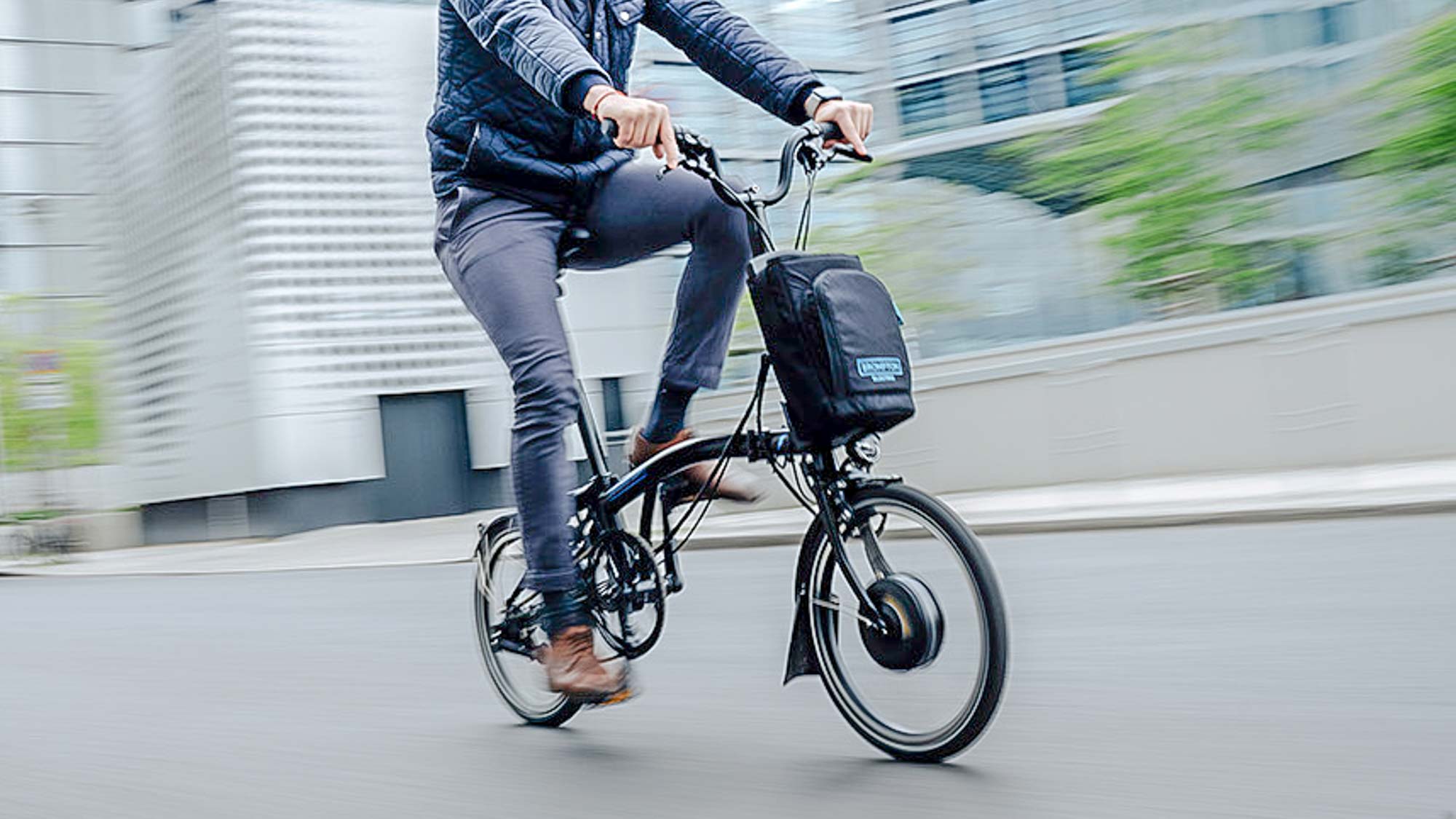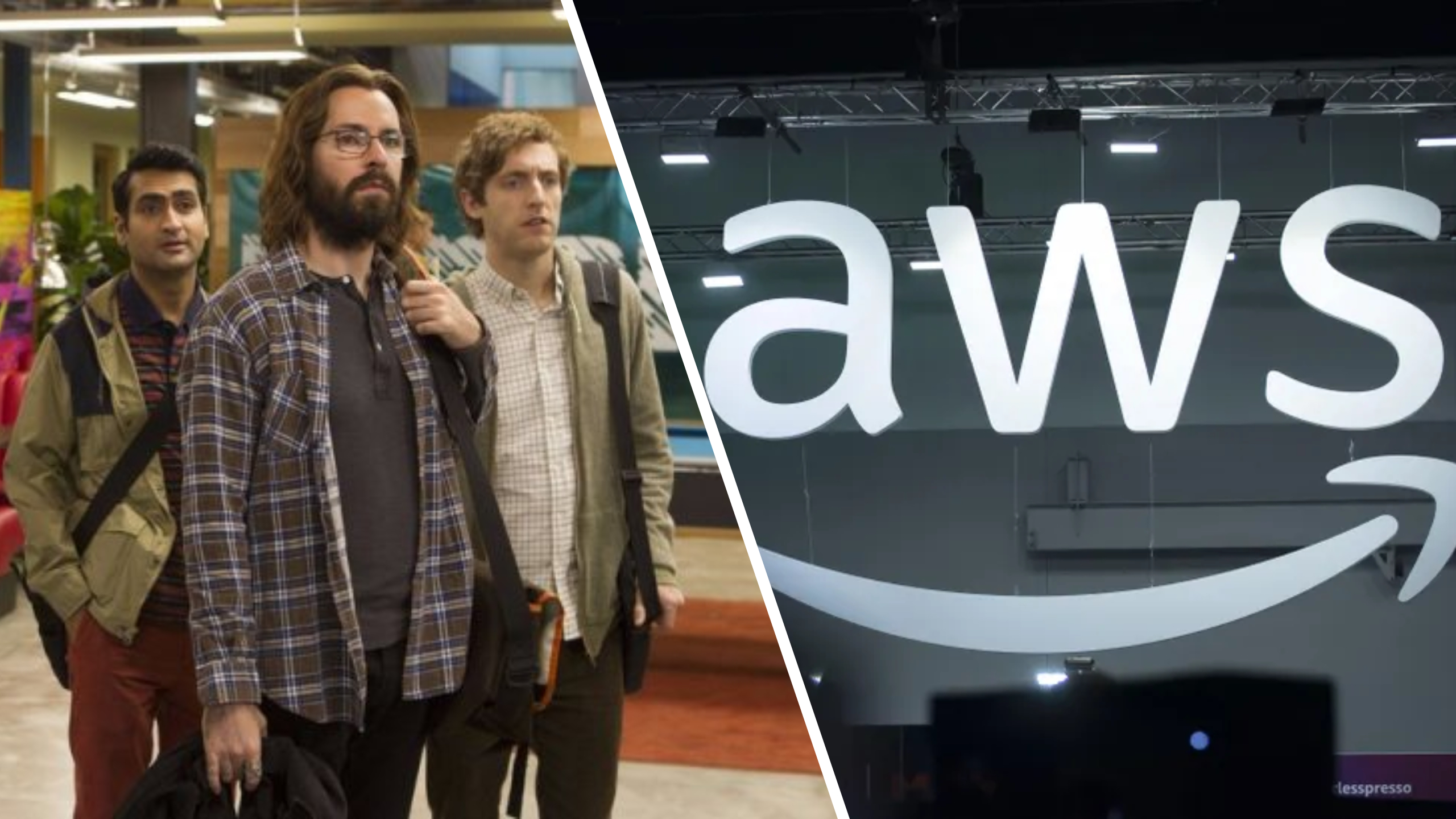Forget EVs — buying an e-bike could save the planet (and maybe ourselves)
The head of Brompton bikes sounds off on the future of transportation

Here at Tom’s Guide our expert editors are committed to bringing you the best news, reviews and guides to help you stay informed and ahead of the curve!
You are now subscribed
Your newsletter sign-up was successful
Want to add more newsletters?

Daily (Mon-Sun)
Tom's Guide Daily
Sign up to get the latest updates on all of your favorite content! From cutting-edge tech news and the hottest streaming buzz to unbeatable deals on the best products and in-depth reviews, we’ve got you covered.

Weekly on Thursday
Tom's AI Guide
Be AI savvy with your weekly newsletter summing up all the biggest AI news you need to know. Plus, analysis from our AI editor and tips on how to use the latest AI tools!

Weekly on Friday
Tom's iGuide
Unlock the vast world of Apple news straight to your inbox. With coverage on everything from exciting product launches to essential software updates, this is your go-to source for the latest updates on all the best Apple content.

Weekly on Monday
Tom's Streaming Guide
Our weekly newsletter is expertly crafted to immerse you in the world of streaming. Stay updated on the latest releases and our top recommendations across your favorite streaming platforms.
Join the club
Get full access to premium articles, exclusive features and a growing list of member rewards.
You may not know its name, but anyone who’s seen a Brompton bike will recognize its peculiar design: Two small wheels connected to what seems like an impossibly long handlebars and seat post. Yet this gangly design, which has remained virtually unchanged since the company’s inception in 1975, allows the bike to fold up on itself, so that you can easily store it in an apartment or carry it on a train or bus.
During the pandemic, bike sales soared due in part to people looking for alternatives to crowded buses and trains, as well as something to do outside, where the risk of infection was lower. Bike sales in the U.S. increased by 57% from March 2020 to April 2021, according to NPD.
It also helped that, with fewer cars on the road, there was suddenly a lot more room for cyclists. In addition, cities such as New York and Paris began adding more protected bike lanes, which also made it easier to get around on two wheels.
As more and more cities — especially those in the U.S. — are expanding their bike lanes, Will Butler-Adams, who has been the managing director of Brompton since 2008, is looking to promote Brompton as the ideal city bike. (Indeed, the Brompton C-Line is on our list of the best electric bikes.)
I sat down with Will Butler-Adams, who has grown the company to around 200 people, with revenues of around £25 million, to ask him about Brompton and the bike market in general.
“In America in particular, cities [have been] designed around the automobile,” Butler-Adams said. “Not around the people that live in the cities. Not around the families that live in the cities. The automobile has been king and the car industry has done a brilliant job of that. But communities and people have suffered.”
As you'll see, Butler-Adams makes the case that e-bikes could have a huge impact on not just bettering the environment but also our own physical and mental health.
Get instant access to breaking news, the hottest reviews, great deals and helpful tips.
What has happened with Brompton over the past few years, and how has the company had to adapt?
"Incredibly, we sort of became cool,” Butler-Adams said. “But that meant our users got younger. And suddenly you’ve got people who weigh 90 kilos and they’re football players and they’re 28, and they go 10 miles each way to work. And they’re ramming the thing and jumping curbs. They’re complete bike breakers, the bastards. And suddenly, the bikes we thought were bomb-proof, at 10 years old they were beginning to break.
“Now if we were a phone company and they were beginning to break, we would be like, great, 10 years, who gives a shit? But we don’t work like that. So we went through a process and fortunately for us technology was getting more powerful…finite element analysis allowed us to take the original design that Andrew had, and we started optimizing it.
There are enough streets in Manhattan that you can close them down and make them pedestrian. And give them back to communities, where you can take out vehicles that are highly polluting.
“We just need to find ways to engage a wider audience. Parents spend a long time teaching their kids how to ride a bike like it’s the most important thing in the world. And once they’ve learned, that’s the last time they use a bike. It’s bonkers. Everybody out there knows how to ride a bike. We just have to bring them back to their childhood.
“We had a moment of enlightenment in Covid. Driven by tragedy, but the enlightenment occurred all the same. Where cities across the U.S. saw what urban living could be like without the car, without the noise, without the fear. Where we had streets that were given back to the community. I’m not suggesting that everyone has to wear open-toed sandals and wander around everywhere with hemp underpants. But there are enough streets in Manhattan that you can close them down and make them pedestrian. And give them back to communities, where you can take out vehicles that are highly polluting.”
Is there any concern that as countries emerge from lockdown, people will revert to their old patterns?
"Some of the Covid stuff like Peloton or like people going mad about cycling recreationally, will take a bit of a nosedive. Because people get back to traveling, back to their traditional holiday in the sun, and not stay local and riding their bike.
"But we’re not in the recreational cycling market per se. That is a part of our market, but ours is very urban. And the urban re-definiton of how we live is being accelerated and is not on a dip. That is a macro trend. We have a climate emergency that is hitting cities across the US hard. We’ve seen the subway flooded in Manhattan.
In Manhattan, about 1.5-2% of people are cycling ... for Manhattan to go to 10% is totally and utterly within reach. And if you can get more people cycling, it will save you a lot of money in healthcare.
"In Manhattan, about 1.5-2 percent of people are cycling, and we have cities that are at 35 percent. And they’re not weird cities. That’s Hamburg, Amsterdam, Berlin, Munich, Barcelona, Brussels. For Manhattan to go to 10% is totally and utterly within reach. And from a strategic perspective, if you can get more people cycling, it will save you a lot of money in healthcare.
It adds value to society. It affects their mental health, it affects their physical health in a positive way. I cannot see that trajectory not continuing. As people see, as governments see, the cost of climate change, and the cost of health, and there’s a solution right there, they will continue this momentum.
When it comes to the overall bike market vs. electric, how big do you envision electric bikes?
"I think in traditional bikes, electric bikes will overtake pedal bikes. You will find a time where they are a majority. I’m not sure that will be the case everywhere. Because we are making something you carry. And while we can make things light, if you want to take a 90-kilo human being up a hill, you need magnets, you need copper. So it’s never going to be as light as you want it to be. Which means it’s not for every single consumer. It will become and is a very important part of our market, and opens our customer base up to a much wider audience.
And it depends on how you’re using the bike. If you’re using the bike and you’re on and off the subway, and you’re up and down stairs, and you’re folding and unfolding it a lot, then electric is a burden. But if you are up in the morning, jump on your bike, and pedal 10 miles in to work, it is insanely gorgeous.
E-bike riders are riding 50-60% more miles than the pedal bike riders, but the drive is only helping them 30-40% of that power, so net, they’re doing more exercise.
"I reckon [electric bikes] be about 30% of our sales and 50% of our turnover, so it’s absolutely instrumental to our future. But we have certain principles in our business, and one is that active travel is really important to us.
All of our e-bikes are pedal/electric — they’re not twist-and-go. For us, you have to pedal. You don’t have to pedal hard, but you have to pedal. And that’s very important because there’s a lot of research that’s come out of, particularly Germany, which is the biggest e-bike market in Europe. When you have an electric assist, as opposed to a pure electric, the electric assist is helping you 30-40% of the power required. You’re still putting in 50-60% of the power. And what’s so interesting is that people on electric bikes are doing more cardiovascular than people who own pedal bikes. And the reason being is that electric bike owner, when it’s a 7-mile ride, when it was a bike, they’ll take an Uber. But with the e-bike, they go 7 miles? Easy.
So the e-bike riders are riding 50-60% more miles than the pedal bike riders, but the drive is only helping them 30-40% of that power, so net, they’re doing more exercise. And we can’t lose sight of that. We need to get people healthier. And if you’re healthier, that affects your mind."
You also see a lot more people using electric scooters now. Do you see that as competition?
"I love the electric scooter. Before the electric scooter, I had to drag someone out of their Suburban and get them onto a bike. They’re sitting in their big fat Suburban and belching out fumes and listening to their tunes, and I’m tapping on their window and saying, do you want to get out of your Suburban and jump on my bike? No way.
But what you get with a scooter is a younger generation. When you’re young you have no fear and jump on a mad little thing with teeny weeny wheels, when you hit a pothole you bite a bit of concrete. When you’re young you don’t care because it’s not going to happen to you. So the scooter is fine because what it does is it gets people to know their city. And they’re using bike lanes and discovering all the little cuts, and whizzing across Central Park and it’s delightful, and they’re discovering the weather isn’t half as bad as they thought, and it makes them feel good about themselves.
But when they hit 30, and their third friend has broken their pelvis and smashed their front teeth out, and their partner is saying, no really, this is a bit dangerous, and they’re finding the six-pack is beginning to disappear…they’re going to think hey, what about a bike?
So I believe they are adding to the richness of urban living. And what we want to do is disruption. What we have, a scooter is a lot more efficient than a Tesla. It takes a lot less space. It’s using a lot less resources. So we shouldn’t be afraid of these new ideas.
I think they have a role to play, but they are dangerous. They just are — the way they’re designed, the center of gravity. If you have to stick the brakes on fast, you tip over forwards. So they have a role to play, and they’re not active travel. You’re not doing exercise.
When we were all young, we could drink five pints of beer and eat what we like and it wouldn’t make a difference, and we can’t do that anymore. So it is a stepping stone. And I’d far rather see someone on a scooter than a two-ton electric vehicle. There’s room for all of us."

Michael A. Prospero is the U.S. Editor-in-Chief for Tom’s Guide. He oversees all evergreen content and oversees the Homes, Smart Home, and Fitness/Wearables categories for the site. In his spare time, he also tests out the latest drones, electric scooters, and smart home gadgets, such as video doorbells. Before his tenure at Tom's Guide, he was the Reviews Editor for Laptop Magazine, a reporter at Fast Company, the Times of Trenton, and, many eons back, an intern at George magazine. He received his undergraduate degree from Boston College, where he worked on the campus newspaper The Heights, and then attended the Columbia University school of Journalism. When he’s not testing out the latest running watch, electric scooter, or skiing or training for a marathon, he’s probably using the latest sous vide machine, smoker, or pizza oven, to the delight — or chagrin — of his family.
 Club Benefits
Club Benefits










